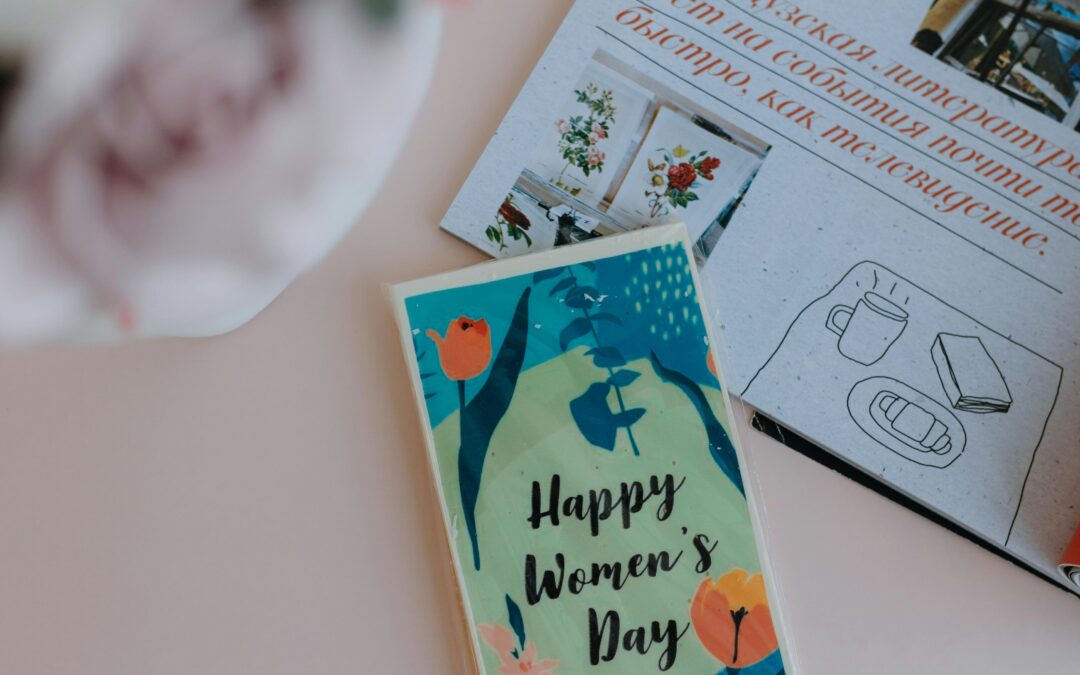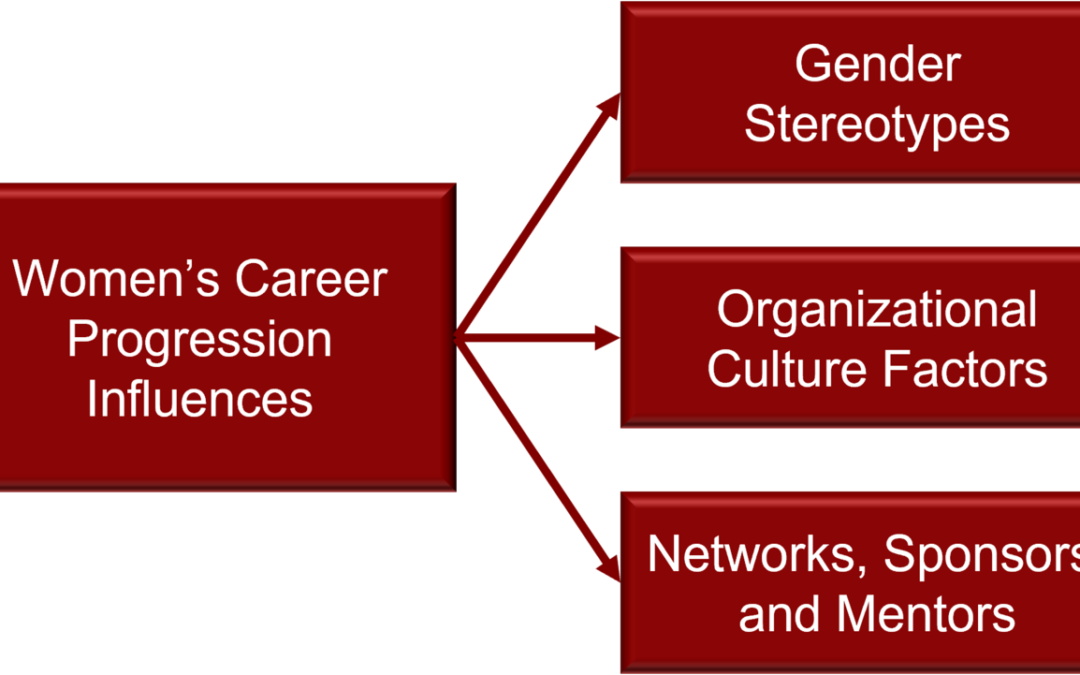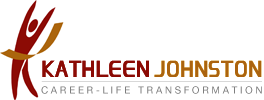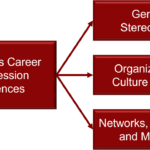
by Kathleen Johnston | Mar 10, 2025 | Uncategorized
International Women’s Day March 8, 2025
The theme for this year’s International Women’s Day is Empower, Inspire, Elevate. It is a call to action to uplift the women around us and ensure they live where they feel valued, supported and safe. The 2025 theme is “accelerate action.”
Why do these terms risk negative language when used to describe a woman? Terms like “pushy” “bossy” “demanding” “overbearing” “arrogant” “opinionated” “rigid” “aggressive?” are often used. Several of the women I serve in my business have experienced this frustrating phenomenon, mostly in their professional lives, but sometimes personally as well.
These women are typically high performers: exceptionally competent, clever by nature, strong willed and deeply committed to accomplishing what they set out to do.
Ideally, they’d be revered as an employer’s dream worker, but instead they may face pushback, blocking, unreasonable demands, and criticism from supervisors, colleagues and partners. Eventually they become disheartened and exhausted from jumping through an endless performance hoop.
One of these women became my client. She was a Senior VP in the oil and gas sector and was assigned an extensive re-organizational project that, to complete, required the collaboration of several senior operations people. They were leaders, but in a lesser role than she. These individuals, male, consistently undermined the project by not providing data, not meeting deadlines, refusing to implement the system changes required. They basically stonewalled the progress of her team.
Finally, after months of trying to resolve it on her own, she went to the COO to explain the problem, hoping he would put a stop to the nonsense. His response “Well, you know (her name), we really just don’t know what to do with women like you.” He suggested that she try asking the (male) leaders more questions about their families, showing them her “softer” side. He thought maybe if they felt more comfortable talking with her about their personal problems, they’d also talk about their work problems. Essentially, he dismissed the issue as “her” problem.
The Oxford dictionary defines strong-willed as “determined to do as one wants even if other people advise against it.” Sentence example: She was a fiercely independent and strong-willed woman. Further information provided by Oxford indicates that the term was applied chiefly in the 19th century with “disparaging implications to women demonstrating the qualities and character regarded as distinctively masculine, or who take an attitude of revolt against the restriction and disabilities imposed on their sex by law and custom.” (Oxford dictionaries.com)
Does this 19th century explanation still fit to explain the experience of the female VP in an oil and gas company in the 21st century?
The language we choose to express ourselves comes in part from our belief system which is created from our culture and experiences. The term strong-willed may conjure up a certain negativity because we’ve learned to think of it, at least for women, as a character flaw. Is that the case, or is this merely a bias against what’s not considered to be suitably feminine?
Despite the strides forward made by women in every occupational sector, the traditional views of what’s appropriately “feminine” seem so covertly ingrained that 50 years after the “Mad Men” era we can still bump up against them in the office of an oil and gas company.
Thankfully, many younger men today do not have a gender bias and don’t even recognize it as an obstacle for women their age. But the reality is that it continues to exist and due to its’ covert nature is difficult both to name and confront.
Before writing this article, I polled a significant number of people in my email list: clients, colleagues, friends and family (96% were women). I asked them to provide their response to this statement: “She’s a competent, strong-willed woman.” I invited them to respond with the immediate descriptive words that popped into their mind – both positive and negative. The results, not surprisingly, were that 2/3 of the respondents included negative descriptors for the term “strong-willed woman.”
The descriptors listed in the first paragraph of this article were used repeatedly. And one woman said, “Strong-willed is a trigger word…I didn’t spend a lot of time on being competent, but all sorts of things came up for me about strong-willed.” Another’s negative list was bitch, self-centered, control freak, ruthless, full of herself.
On the other hand, nearly everyone commented that “competent” felt positive to them. It made them think of someone who is a good leader, a fast learner, motivated, confident, knowledgeable, follows her values, committed, capable and intelligent. The results of a poll I did with my clientele seems to bear out that thinking. I close with a few quotes from the respondents:
Hi KJ. Here are my thoughts off the cuff: “Competent” – she gets things done with minimal fuss. She is confident in her abilities and knows her worth without needing to puff up her image. From that place of confidence, she goes about her business with grace and ease. It is acceptable for women to be competent.
Much to my consternation, I have difficulty with “strong-willed.” My immediate associations are: being pushy and demanding, not sensitive, not listening, needing to shut out external feedback in order to barrel through with a plan. And yes, there’s a sense that she compromises her femininity by being strong-willed. I wish it were not so. Although I have examples of strong-willed women who do not exhibit these negative qualities, I think my earliest and most enduring examples are of women who had to generate so much energy to exert their will that it comes off as hard.
“Interesting. My first reaction was negative. But when I substituted “person” for “woman” I had a more satisfactory reaction. The use of woman denotes that the fact she was competent and strong-willed was somehow unusual or weird, when in fact it should be quite normal.”
The comment directly above is from a male in his late sixties. Notice his use of the phrase “it should be quite normal.”
This gives me hope that the career conundrums continuing to be experienced by today’s women will eventually be resolved, maybe not in my lifetime, but surely in that of my granddaughters.
Happy International Women’s Day!
Kathleen

by Kathleen Johnston | Jan 1, 2025 | Uncategorized
A New Year’s resolution is typically a commitment to oneself for the year ahead – perhaps to accomplish a project, change a habit, or make a lifestyle transformation. Some people love to make resolutions; others rarely or never do. It’s also fair to say that a lot of people who make resolutions do not follow through.
It’s not easy to maintain commitments to oneself simply because we make them in January. The same forces that contribute to the difficulty of implementing life changes are at play in January just as they are the rest of year.
The tradition of the New Year’s Resolutions goes back to 153 B.C. The Romans named the first month of the year after Janus, the god of beginnings and the guardian of doors and entrances. Janus was always shown with two faces, one on the front of his head and one on the back. At midnight on December 31, the Romans imagined Janus looking back at the old year and forward to the new. Janus became the ancient symbol for resolutions.
Much of our behaviour as humans is habitual. Implementing personal change often begins with confronting an ingrained habit and making a commitment. To counter habits that have literally been burned into our brain’s neural pathways we must commit to learning new behaviour. This takes intention, perseverance, time and support.
Like many people in my age category, I started smoking when I left home at age 18. It was not the unhealthy, disgusting habit it’s seen as today, but I was sure relieved to get rid of it. My husband is not and was never a smoker, so the pressure was high. I tried quitting several times and finally succeeded when I was 36.
During a discussion on personal motivation for change, one client said recently. “I need to lose some weight. I know that. So, when I’m feeling stressed from work, what is it that compels me to go home and bake and eat a batch of cinnamon buns? I’m an intelligent woman! Why would I do that?
There’s no simple answer to that question. However, rest assured that a critical element for success is support. It is much easier to implement change when we have encouragement from others.
Whatever changes you plan for 2025 be sure to begin with a serious commitment plan and garnering the support you need.
My very best wishes to you for an exceptional year ahead.
Blessings,
Kathleen

by Kathleen Johnston | Feb 4, 2024 | Uncategorized
It is January! A great time for reflection, setting intentions and planning choices for living well. I have decided that the question posed as the title for this article will guide my daily living in 2024.
I absolutely love to read. One of my habits is to make notes when I discover things I want to remember or be able to review. A drawback to that habit is that I don’t always reference the source and so often I cannot say where I read it. Oh, the frailty of being a human.
The content of this article consists of information I have found to be helpful and and so have written it in my journals. Some are sourced, most are not.
Here are a few of my notes and quotes about living well:
·Begin with the attitude that your choices matter. Thus, we can either grow or become diminished by what we do or do not do.
·It is not just what happens to me that shapes who I am, but what happens inside me that makes the difference – what I feel and how I react inwardly and outwardly determines who I become, far more so than the degree of adversity I encounter.
·An intention is a seed that creates behaviour. Be mindful of your Intentions for they are mostly unconscious. Only a fully awake heart understands our intentions.
·“While achieving goals can bring temporary satisfaction, it can never replace the need to know the meaning found in experiencing what we are.” (The Call by Oriah Mountain Dreamer).
· Ego: who we are. Essence: what we are. Life without essence awareness lacks meaning and connection. Life without ego awareness lacks fire and direction. (The Call by Oriah Mountain Dreamer).
· How much of the story you have created about yourself do you mistake for who and what you really are? This question came from a course I took this past spring. The lecturer asked all attendees to take time each day over the week between his classes to do this exercise:
Take a blank sheet of paper and write at the top: Who Am I, REALLY? And then free flow your responses. It was worth the time.
·“Watch your thoughts, they become your words; watch your words, they become your actions; watch your actions, they become your habits; watch your habits, they become your character; watch your character, it becomes your destiny.” ― Lao Tzu
Warm wishes and blessings as you make the best possible choices for yourself in 2024.
Love, Kathleen

by Kathleen Johnston | Sep 21, 2023 | Uncategorized
Being authentic requires self-awareness, self-acceptance, and intentional behaviour.
Authentic people have the courage to consistently present their Higher Self in all relationships. People who are authentic are clear about the philosophy and principles that guide their lives. They treat themselves and others with respect. They demonstrate their character and what they believe in by what they say, what they do and what they “say they do.” Our current culture is strongly influenced by social media’s definition of what matters most rather than by the virtues that define a person’s good character.
In today’s world, success tends to be measured externally e.g. by salary, status, achievements, position, power, or number of social media followers, rather than by whether or not someone is of good character. A common question asked of children “What are you going to be when you grow up?” might suggest there’s a natural fit between the true self and the kind of work that is chosen when one grows up.
However, that assumption fails to consider how quickly the obsessive nature of “doing” in our paid work roles can undermine and distract us from the yearnings of our real being, The outcome of a strong focus on doing rather than being keeps us tied to the drives of our ego.
On the other hand, living authentically true to oneself can provide the depth we need to go beyond what we do for a living, the titles we have, the possessions we own, or how much money we earn. I believe that living from the strength of authenticity provides one with a distinct career advantage because it contributes to trust building in all relationships.
In his book The Speed of Trust Stephen M.R. Covey encourages his readers to be sure to build a high trust account in their lives, for there is nothing more important in every relationship. Our authentic self is who we are at our deepest core. It is our connection to Source, and it is the true path to career wellbeing, contentment, and joy.
Questions for Reflection:
1. Describe your fundamental nature, e.g. what is at the core of your character?
2. Who are the authentic people in your life and what do you admire most about them?
3. What are some things you have changed or would like to change in your life, for you to live more authentically?
Love and Blessings,
Kathleen
_____________________________________________________________________________
“If you do not tell the truth about yourself, you cannot tell the truth about other people.” Virginia Woolf

by Kathleen Johnston | Mar 9, 2023 | Uncategorized
International Women’s Day typically provides us with an opportunity to reflect on the challenges faced by women.
Whether the role is mothering, caregiving, paid professional work or a combination thereof, prioritizing the competing demands women contend with can feel relentless. One woman described it as “hurtling through life as if it were an out-of-body experience.”
This article will not cite all the ways in which women’s lived experience has not changed much over history, never mind in the past 50 years. There were very distinct role norms for female and male staff in the 1960’s when I worked as a secretary. My sons just laugh at my stories and say “Ah, come on Mom, things weren’t that bad!” While that may be true in part, real progress since has been painfully slow.
In my current role as a career counselling therapist and executive coach here are some realities from my client’s experience this past couple of years:
- A double standard still exists regarding behaviour. For example, when bullying is disguised as humour and women are expected to put up with it or told they “just need to learn to take a joke.”
- Although fully competent, a woman is not promoted over and over, and in some cases a less than competent male becomes her supervisor with the expectation that she will “train” him.
- Women continuing to be accused of being too emotional or strident when providing feedback as a manager/leader vs men whose feedback to direct reports is seen as “strong,” “sensible,” or “calm.”
- The continuing existence of the Queen Bee syndrome which is defined as a woman in a position of authority in a male-dominated environment who treats subordinates more critically if they are female.
So, what is to be done you ask? First, women must consistently build and maintain a strong professional support network of both men and women. It is critical that women have sponsors and mentors.
And women must speak up about what we will and will not tolerate and do that judiciously. We must stop putting up with the bullets listed above, and with other unacceptable realities that I have failed to list here in the interest of space.
And when that becomes impossible and your heart aches from the unfairness of it all, then you must take action to move on to a place where you truly belong; where your strengths and competencies are appreciated and recognized.
I close with this little poem that I hope will touch your spirit and move you to action.
Women’s Progress from the Heart
Open your heart and let your special dreams come true,
For the time has come for you to know what you are here to do.
Your gifts are there inside you, and the world awaits to see,
What the angels always knew you were really meant to be.
It may have been a while that you have wandered and felt lost,
But you can recover from the sadness and its cost.
Deep within your heart lie the secrets of your soul,
You must let them surface with delight and shine for all to know.








